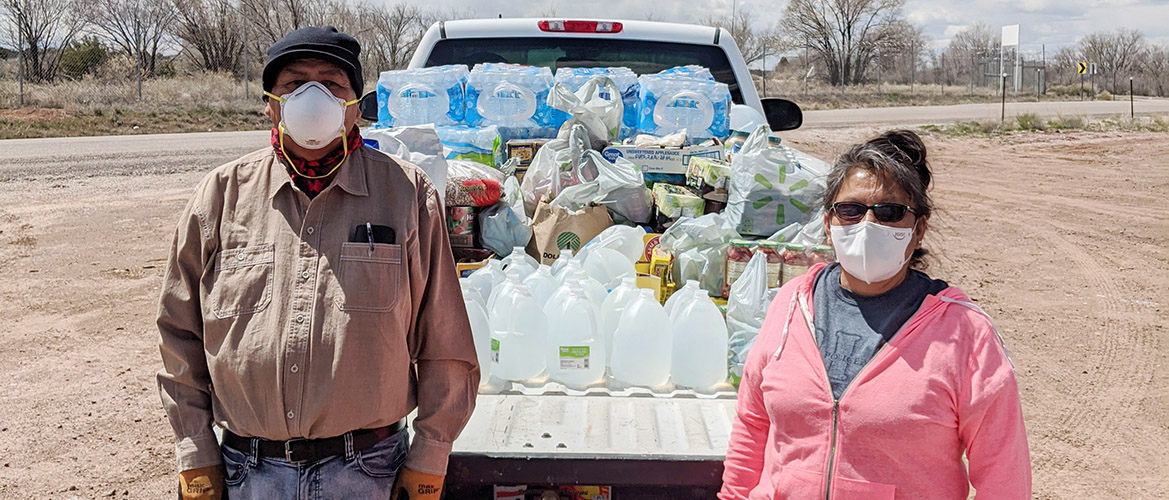New Mexico’s native communities have been disproportionately impacted by the COVID-19 pandemic. According to recent data from the New Mexico Department of Health, Native Americans account for almost 60% of New Mexico’s COVID-19 cases, although Native Americans make up about 11% of the state’s population.
Many native communities in remote places face unique health and social challenges, such as limited access to health care facilities, grocery stores and essential supplies.
“Most community members living within the Navajo Nation travel long distances to the nearest town or store to purchase food and essential items for their home,” said Julia Platero, outreach specialist and tribal liaison for Health Care Service Corporation's New Mexico plan. “There are only a few general merchandise stores in or around the Navajo Nation, and essential cleaning supplies and certain food items are usually sold out. There are also low-income families who do not have the means to purchase essential items.”
Platero learned from a staff member of the Navajo Area Indian Health Service at the Crownpoint Health Care Facility that the community especially needed essential cleaning supplies and paper goods.
In response, HCSC employees in New Mexico banded together to provide essential supplies to the Navajo Nation. Over the course of only a day and half, employees contributed more than $900 to buy supplies in addition to donating more than $1,200 worth of items. Donated supplies included cleaning products, sanitizers, paper towels, toilet paper, homemade masks, water, non-perishable food, baby care items and feminine hygiene products. Donations were delivered to the Standing Rock staging post to benefit surrounding communities on the Navajo Nation, including families who are quarantined and people who are elderly or at high-risk for coronavirus.
“Standing Rock Chapter oversees 18 chapters. Items that were donated will be equally distributed among the 18 chapters,” said Arlene Coan of the Standing Rock Chapter. “There’s not much more I can say but to say thank you, thank you, thank you, to all of you.”
Family and friends of the Community Outreach department also made 50 masks for service providers and community members in To'hajiilee, and employees continue to give back. A second round of donations resulted in more than $1,000 worth of supplies being delivered to the Sheep Springs staging post between Gallup and Shiprock to support 10 rural communities. Supplies include cleaning products, baby care items, hygiene products, pet food, water and flour.
In addition, HCSC's New Mexico plan donated $10,000 to the Navajo Nation COVID-19 Fund. The Navajo Health Command Operations Center established the fund to address urgent needs of the community. The fund will be used to purchase medical supplies, personal protective equipment (PPE), cleaning supplies and sanitizers, toiletries, paper products, non-perishable food, bottled water, baby care essentials and other items. Supplies will be distributed to health care workers, law enforcement and community members in need.
To help serve Navajo members, Platero also volunteered to work with the plan's customer service to assist with Navajo translation.
The Navajo Nation is one of 23 tribes in New Mexico, and HCSC continues to find ways to help New Mexicans impacted by COVID-19 throughout the state. As part of the company’s COVID-19 Community Collaborative Grant Fund, the New Mexico plan contributed $30,000 to the Pueblo Relief Fund to meet the critical needs of New Mexico Pueblos during the COVID-19 crisis. The All Pueblo Council of Governors and the Indian Pueblo Cultural Center will use the funds to buy essential items such as cleaning and disinfecting supplies, PPE and food.
The plan also gave 250 reusable bags and 50 hand sanitizers to Laguna Pueblo, which used the items to provide supplies and food for vulnerable tribal members.

